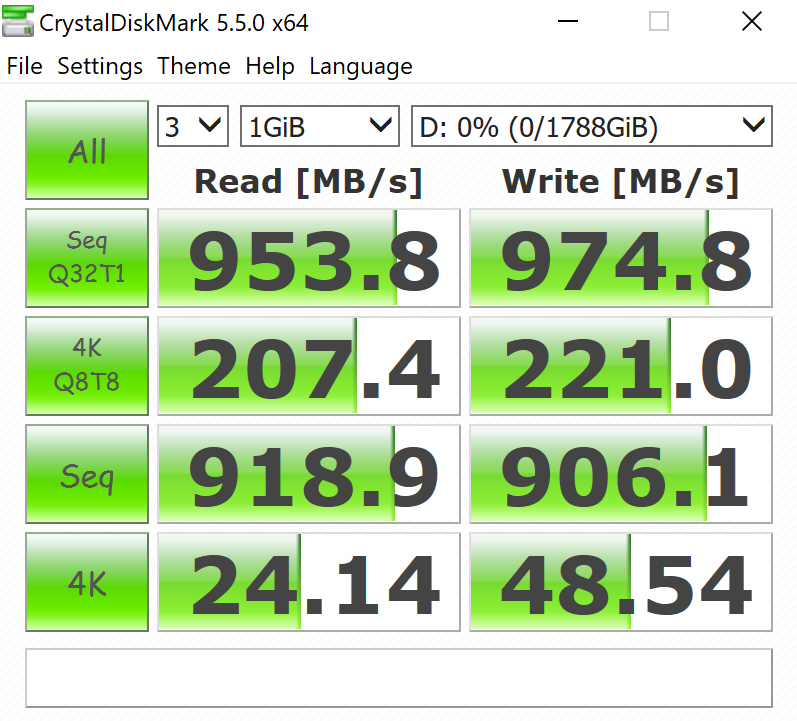CRYSTAL DISK BENCHMARK VER. 5.5.0 X64
Crystal Disk Benchmark is used to measure read and write performance through sampling of random data which is, for the most part, incompressible. Performance is virtually identical, regardless of data sample so we have included only that using random data samples.
The toughest benchmark available for solid state drives is AS SSD as it relies solely on incompressible data samples when testing performance. For the most part, AS SSD tests can be considered the ‘worst case scenario’ in obtaining data transfer speeds and many enthusiasts like AS SSD for their needs. Transfer speeds are displayed on the left with IOPS results on the right.
Our original testing of the prototype JMicron version of this type yielded practically the same results and I have to be the first to admit, for such a great price point, this is an excellent NVMe external enclosure solution.
While we wouldn’t recommend investing so heavily on a premium 2TB M.2 NVMe SSD for this enclosure, there are certainly many out there that makes this absolutely one of the best external storage solutions available right now, at least for 10Gbps data transfer.
Check out MyDigitalSSD M2X Prices on Amazon.
 The SSD Review The Worlds Dedicated SSD Education and Review Resource |
The SSD Review The Worlds Dedicated SSD Education and Review Resource | 


What sort of SSD would you recommend for this enclosure then?
I bought laptop with quite weak m.2 SATA ssd. They seems standard, even in good laptops. It seems like a solid choice to insert that 2TB as boot drive and make laptop one external, whatever it was.
enclosure limits 1/1 so this m.2 is solid overkill
Well, this enclosure is for M2 NVME SSD. For M2 SATA SSD there are a lot of other, older and cheaper USB enclosures on market. But SATA speed limit is about 500MB/s. Usually SATA ans NVME SSD are not interchangeable in slot, and SATA SSD surely would not work in reviewed enclosure.
*I also use my old NVME SSD from my laptop in alike enclosure.
Cheapest you can find. Just be sure that it is NVME SSD. Both PCI x2 and x4 NVME SSD would work in this enclosure with equal speed. Even Intel SSD 660P should work. You can take something faster(like XPG 6000 or 6200, Kingston A1000) or even the fastest(HP 920, XPG 8200) if you plan to move it to your PC or laptop in future, but the max speed through USB 3.1 would be the same: 1GB/s.
This would also be useful for cloning an M.2 boot drive before replacing the current boot drive. I use SATA-USB enclosures for this purpose, so I’m glad this M.2 NVMe enclosure exists.